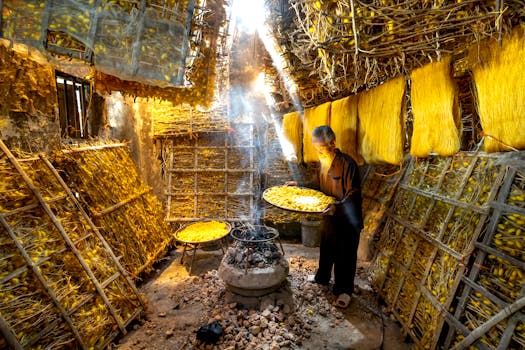Grassroots Growth: The Impact of Local Fiber Producers on Africa’s Economy

Grassroots Growth: The Impact of Local Fiber Producers on Africa’s Economy
Grassroots Growth: The Impact of Local Fiber Producers on Africa’s Economy is a topic of great interest in recent years. Local fiber producers are playing a vital role in driving economic growth and development in Africa. The continent’s economy has long been dependent on foreign investment and imports, but the rise of local fiber producers is changing this narrative. In this article, we will explore the impact of local fiber production on Africa’s economy, highlighting the benefits and challenges of this emerging industry.
Introduction to Local Fiber Production
Local fiber production refers to the cultivation and processing of fiber crops, such as cotton, hemp, and flax, within a specific region or community. This approach to fiber production has several advantages, including reduced transportation costs, increased job creation, and improved quality control. In Africa, local fiber production is being driven by small-scale farmers, cooperatives, and community-based initiatives. These producers are using traditional techniques, combined with modern technology, to cultivate and process fiber crops, creating a range of products, from textiles to paper.
The Benefits of Local Fiber Production
The benefits of local fiber production are numerous. Firstly, it creates jobs and stimulates economic growth at the local level. According to a report by the International Labour Organization, the textile and clothing industry in Africa employs over 10 million people, with the majority being small-scale farmers and artisans. Local fiber production also reduces reliance on imported goods, promoting self-sufficiency and reducing trade deficits. Additionally, local fiber production helps to preserve traditional skills and knowledge, promoting cultural heritage and identity.
Challenges Facing Local Fiber Producers
Despite the benefits, local fiber producers in Africa face several challenges. One of the main challenges is access to finance and markets. Many small-scale farmers and producers lack the resources and infrastructure to compete with larger, industrial-scale producers. They also face difficulties in accessing markets, both locally and internationally, due to lack of standards, certification, and marketing support. Another challenge is the lack of government support and policy frameworks to promote local fiber production. In many African countries, the textile and clothing industry is not prioritized, and policies often favor large-scale, foreign-owned enterprises.
Case Studies of Successful Local Fiber Production Initiatives
Despite the challenges, there are many successful local fiber production initiatives in Africa. For example, in Rwanda, the government has launched a program to promote local textile production, providing training, financing, and market access to small-scale farmers and artisans. In Ghana, a cooperative of small-scale farmers has established a successful textile production business, exporting products to Europe and the United States. In South Africa, a community-based initiative is using fiber production to create jobs and stimulate local economic growth, while also promoting environmental sustainability and social justice.
Conclusion
In conclusion, local fiber producers are playing a vital role in driving grassroots growth and development in Africa’s economy. While there are challenges to be addressed, the benefits of local fiber production are numerous, from job creation and economic growth to cultural preservation and environmental sustainability. As the African continent continues to grow and develop, it is essential to prioritize support for local fiber producers, providing them with the resources, infrastructure, and policy frameworks needed to compete and thrive in the global market.




